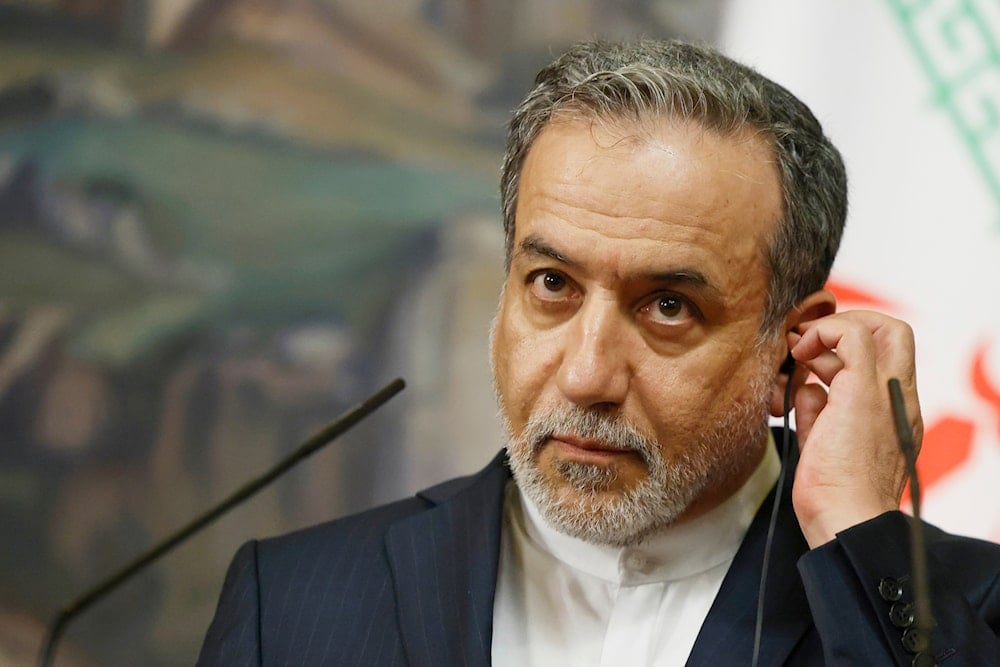Iranian delegation arrives in Rome for second round of nuclear talks
Iran’s delegation arrives in Rome for indirect US nuclear talks, as Ali Shamkhani outlines nine principles for a balanced deal. Here are the details:
-

Iranian Foreign Minister Abbas Araghchi attends a news conference following his meeting with Russian Foreign Minister Sergey Lavrov in Moscow, Russia, on April 18, 2025. (Tatyana Makeyeva/Pool Photo via AP)
An Iranian delegation led by Foreign Minister Abbas Araghchi arrived in Rome on Saturday for a new round of indirect nuclear talks with the United States, with Oman acting as mediator.
Representing the US side is Presidential Envoy to the Middle East, Steve Witkoff, who is heading the negotiations.
Nine principles for reaching a comprehensive, balanced agreement
Ali Shamkhani, advisor to Iran’s Leader Sayyed Ali Khamenei, affirmed that Tehran is "moving toward a balanced agreement, not surrender," stressing that the Iranian team in Rome holds "full authority to reach a comprehensive agreement based on nine principles."
These principles, Shamkhani explained, are: "seriousness, assurance, balance, lifting sanctions, rejecting the Libya/UAE model, avoiding threats, speed, curbing troublesome parties (such as Israel), and facilitating investment."
According to Tasnim News Agency, the second round of indirect nuclear talks between Iran and the US will begin at 2:00 PM Tehran time (1:30 PM al-Quds time).
Al Mayadeen’s correspondent in Rome reported that negotiations at the Omani mission's headquarters may extend until tomorrow, adding that the US side has yet to clarify its position on key issues surrounding the Iranian nuclear file.
We sensed seriousness from the Americans during first round: Araghchi
Regarding the indirect talks with the US, Araghchi said on Friday that Iran sees a degree of seriousness from the American side, but emphasized that direct negotiations are currently off the table. "An agreement is possible if the US refrains from making unrealistic demands," he said.
This round follows last week’s initial talks in the Sultanate of Oman, which both sides described as "constructive," and comes on the heels of Trump’s Thursday remarks that he was not eager to take military action against Iran’s nuclear facilities, emphasizing that diplomacy remains his preferred path, with emerging reports claiming he discouraged an Israeli strike.
In response to a New York Times report claiming he had "waved off" Israeli plans to target Iranian nuclear infrastructure, Trump clarified, "I wouldn’t say ‘waved off'," adding that "I’m not in a rush to do it because I think that Iran has a chance to have a great country. That’s my first option."
Trump also warned of the consequences if diplomacy fails. "If there’s a second option, I think it would be very bad for Iran, and I think Iran wants to talk. I hope they want to talk."
'Peaceful solution'
For his part, US Secretary of State Marco Rubio expressed his hope on Friday for "a long-term and peaceful solution,” Rubio said, expressing hope that dialogue would continue in a productive direction.
The White House has confirmed that a second round of US-Iran talks is scheduled for April 19, suggesting Washington’s broader diplomatic strategy remains active across multiple fronts.
While analysts anticipate that the US would seek to expand the scope of negotiations to include Iran’s ballistic missile program and its support for regional resistance movements, Araghchi firmly stated that "all of Iran’s military capabilities are defensive and will not pose a threat to any country."
He further emphasized that Iran does not seek to possess, produce, or acquire a nuclear weapon, under any circumstances, noting that a decade after the original nuclear agreement, unilaterally abandoned by Trump, "no evidence has emerged to support the claim that Iran has violated it."

 4 Min Read
4 Min Read








